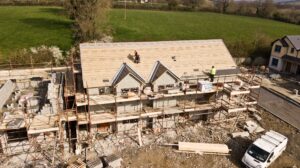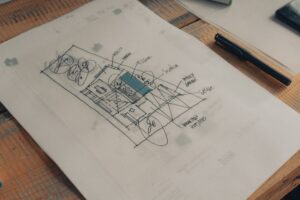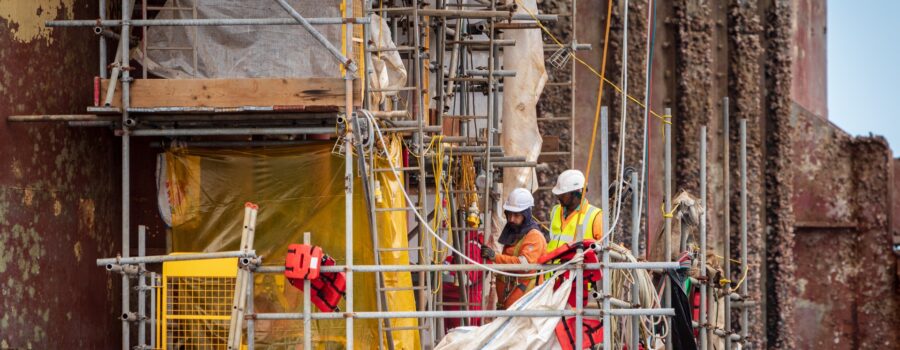
The Property Development Journey and How to Get Started
Property development involves any kind of activity or process wherein land or buildings are developed for the purpose of reaching a higher use.
In many cases, property development results in the creation of single-residence homes, apartment buildings, and commercial buildings of all different types. Property development is also known as real estate development. Real estate is any property that consists of buildings or land, which includes the natural resources that are found on the land.
No matter what you want to develop, property development is a way to create something that can eventually be sold for money, which should allow you to make profits as long as your development budget is reasonable.
This article offers up a closer look at the various steps in the property development journey as well as what it takes for you to get started with this process.

What is Property Development?
Property development is any kind of process that involves the development of land or buildings in order to better use the property. This kind of development can generate a high return on investment if the development process goes smoothly.
The various types of projects that property development encompasses include:
- The conversion of one type of property into another
- Purchasing land or building some kind of property on land
- Renovating, improving, or extending an existing property
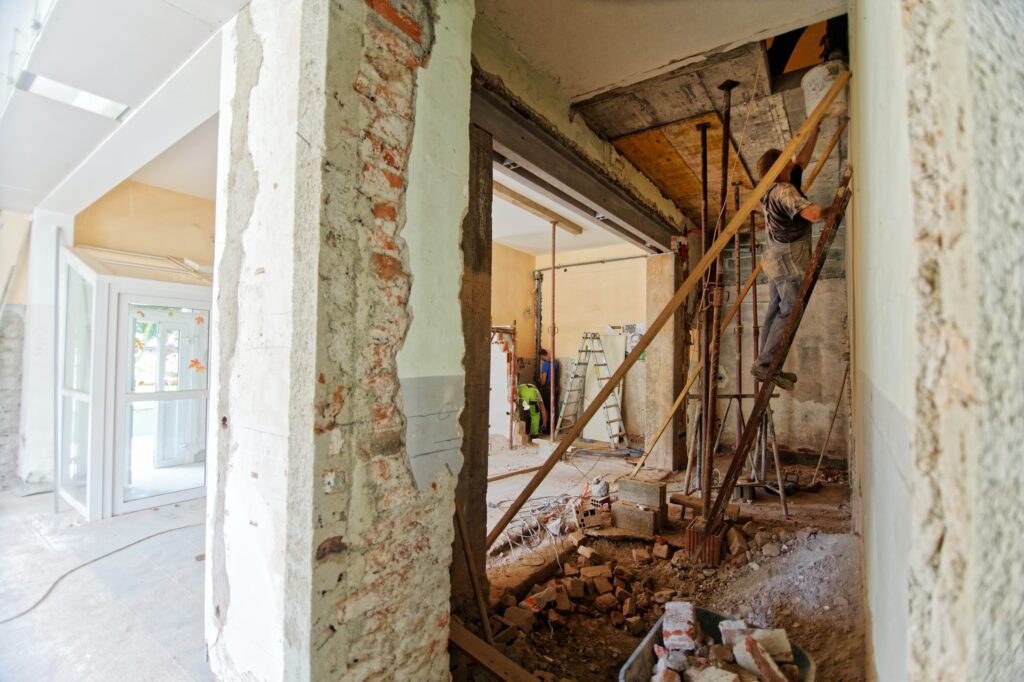
When you engage in property development, you are adding value to property or land. There are plenty of reasons why you should consider property development, the primary of which is that this form of development can bring about a high return on investment. If you develop property to its best use-value, there’s a good chance that you will make substantial profits. The most popular forms of property development include:
- Apartment buildings
- Townhouses
- Single-family residences
- Commercial buildings like shopping centers
A great aspect of property development is that there are many different types of development available to you, which allows you to decide which form of development you would most like to invest in.
Should You Be a Property Developer?

Being a developer comes with numerous benefits as long as you’re fully aware of what you’re getting into. Before becoming a property developer, it’s important to understand that this job comes with many responsibilities.
For one, being a property developer means that you should be able to save a significant sum of money. Instead of purchasing properties once they are listed on the market, you will be able to acquire land or begin the development process at around 15-20 percent below the market cost, which makes it much more likely that you will be able to make a profit on a long-term basis.
When looking specifically at profits, being a property developer gives you the opportunity to develop a property to a higher use value, which means that the end result will automatically be more valuable when compared to how the land or property was before development began. Keep in mind that you can make even higher profits if you time the sale of the property well and eventually sell it when the real estate market is at its strongest.
Property development is also easier to finance than you might expect. When you have finished your development project, it’s possible to remortgage the property. Banks will typically provide loans of up to 80 percent of the current property value. To this point, you’ll have a substantial amount of leverage once the project has been completed, which can help you purchase additional assets in the future. Overall, property development can be highly lucrative, which is why you should consider becoming a developer if you have the means and drive to do so.
Getting Started with Property Development

Once you’ve made a decision that being a property developer is right for you, it’s time to actually get started with property development. First of all, it’s very important that you take the time to learn about the property that you’re investing in, the surrounding market, finance, economics, town planning, and the process of construction.
It’s also not a bad idea to study more about marketing for real estate projects of all types. By educating yourself on these subjects, you should be prepared to deal with any setback and issue that occurs throughout the development process. Once you understand what property development takes, you should know who to talk to and what the cost of the project is going to be.
Who Should You Talk To?

Even smaller property development projects are comprised of many moving parts. Before you even think about getting started with property development, it’s important that you hire the right people for the project.
The individuals you should talk to include:
| Engineers | Specialists for the civil, environmental, traffic, and structural components of a property development project |
| Urban designers and town planners | Individuals who develop plans for the use of land |
| Real estate agents | Represents buyers and sellers of real estate property during a transaction |
| Accountants | Can help you set up the right ownership structure for the property |
| Property strategists | These individuals will help you identify the right short-term and long-term strategy for your investment |
| Lawyer | Can assist with your contracts |
| Finance strategists | Will help you obtain development finance |
| Project managers | These individuals will be the lead for planning, executing, and monitoring a project until completion |
| Development managers | Will manage the entire development process |
| Construction managers | Will specifically manage the construction components of a development project |
| Quantity surveyors | Manage the costs pertaining to a property development project |
| Architects and designers | Will help you design the building that you wish to create |
| Project marketing specialists | Can help you market the property once it’s been completed |
| Landscape architects | Will analyze, plan, design, and manage the land that you’re developing on |
| Building contractors | Can include general contractors, electricians, plumbers, and painters |
The Cost of a Project and Its Profitability

The most important question to ask when starting a development project is if you can afford to complete the development project. To identify how much a project costs, you should look at the initial purchase price, the equity in the project, any legal costs, costs for consultants like architects and town planners, construction costs, a contingency amount in the event of unexpected costs, and any taxes that will be collected on the property.
You can also use these costs to determine the profitability of the project. To identify the profits you may be able to make once the project is finished, you should compare the costs to the income that you’ll receive from future rentals or the eventual sale of the property. It’s also important that you identify how much you will be able to borrow and the kind of financing that you can receive for the project. You won’t be able to fully understand the budget limitations that you have until you know how much funding you can receive from lenders.
Keep in mind that financing a property development project is considered to be more difficult than financing a basic investment purchase. Most banks and lending institutions allow developers to borrow anywhere from 70-80 percent of the total construction costs as opposed to the final value of the project. These costs don’t include consultant costs and architect fees. In the event that your project involves constructing at least four dwellings, the project will be considered by the banks to be a commercial project, which means that obtaining financing will be even more difficult and time-consuming.
If you want to heighten the possibility that you receive funding for your development project, it’s important that you can provide proof of having strong and consistent financials. You’ll also need to give the banks a sizable down payment to lessen their risk of lending to you. While the costs of a development project can be high, your expected profits may significantly exceed the initial costs, which can be highly beneficial.
The Next Steps
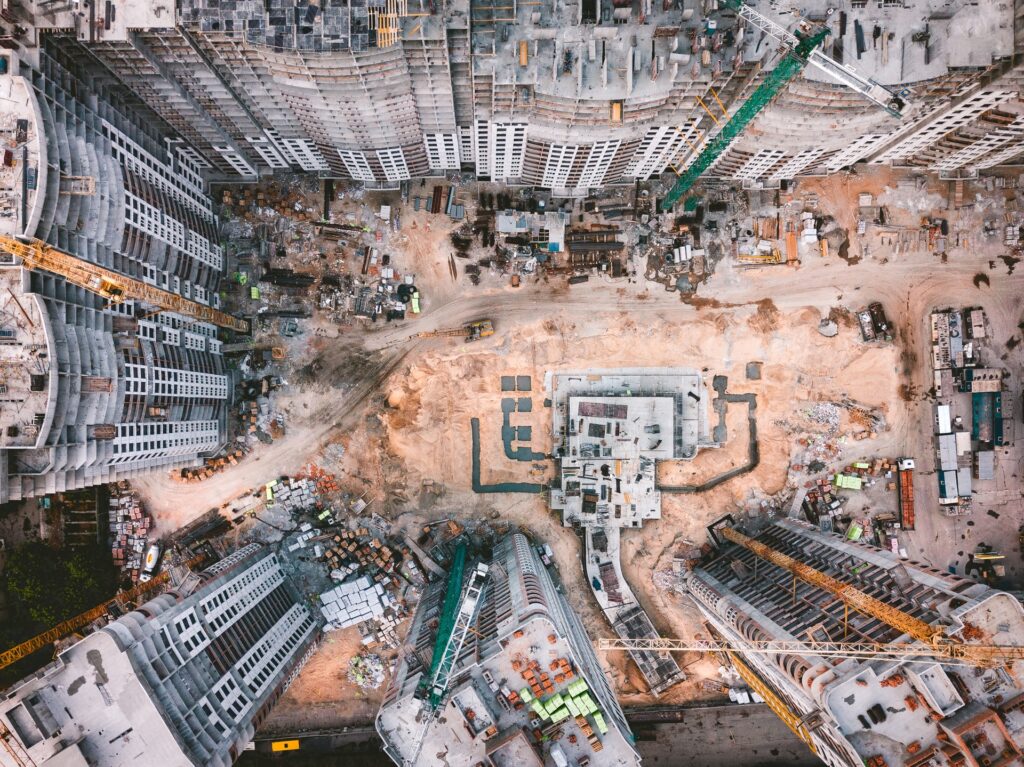
Once you’ve decided that you’d like to get started in property development and understand the costs related to your project of choice, you should be aware of the next steps in the property development process, which include:
| 1. Pre-purchase stage | This is when you’ll investigate various properties to determine which one is right for you, after which you should conduct a feasibility study |
| 2. Negotiating contracts and purchasing | This stage involves purchasing the land where development is going to take place, which requires negotiating the right price and signing a contract |
| 3. Town planning and development approval | Your architect will create plans that will adhere to guidelines set by the city council or planning department |
| 4. Working, Drawing, and Documentation | When development has been approved, the final plans for the building will be created |
| 5. Pre-construction | You’ll want to hire the right builder by obtaining several quotes and by looking at the reputation of the builders you’re considering hiring |
| 6. Construction | This stage involves actually constructing the building per the development plans, which can take anywhere from 6-12 months to complete |
| 7. Completion | This stage involves submitting a subdivision plan to obtain titles for each dwelling |
Ready to Begin Your Property Development Journey?
If you believe that you’re ready to begin your property development journey, the most important thing to remember is that you’ll want to hire the right partners for the job. During development, you will require a large number of consultants, building permits for the project, builders who you can trust, and other professionals who can handle every additional facet of the project.

Jason Somers, President & Founder of Crest Real Estate
With over 15 years of professional experience in the Los Angeles luxury real estate market, Jason Somers has the background, judgement and track record to provide an unparalleled level of real estate services. His widespread knowledge helps clients identify and acquire income producing properties and value-ad development opportunities.
Learn more about Jason Somers or contact us.

